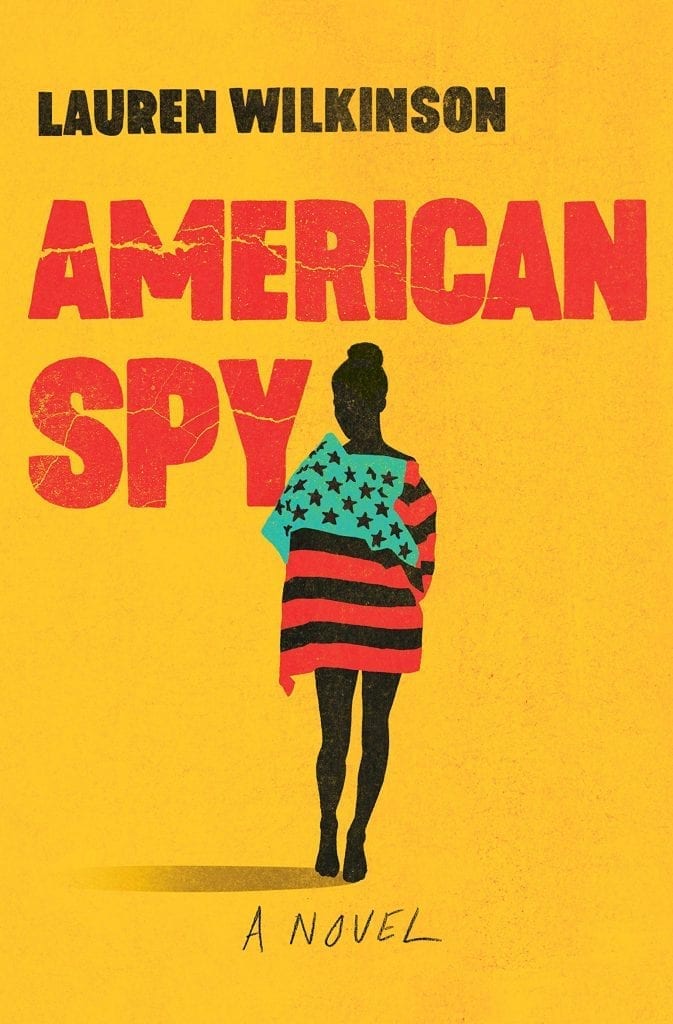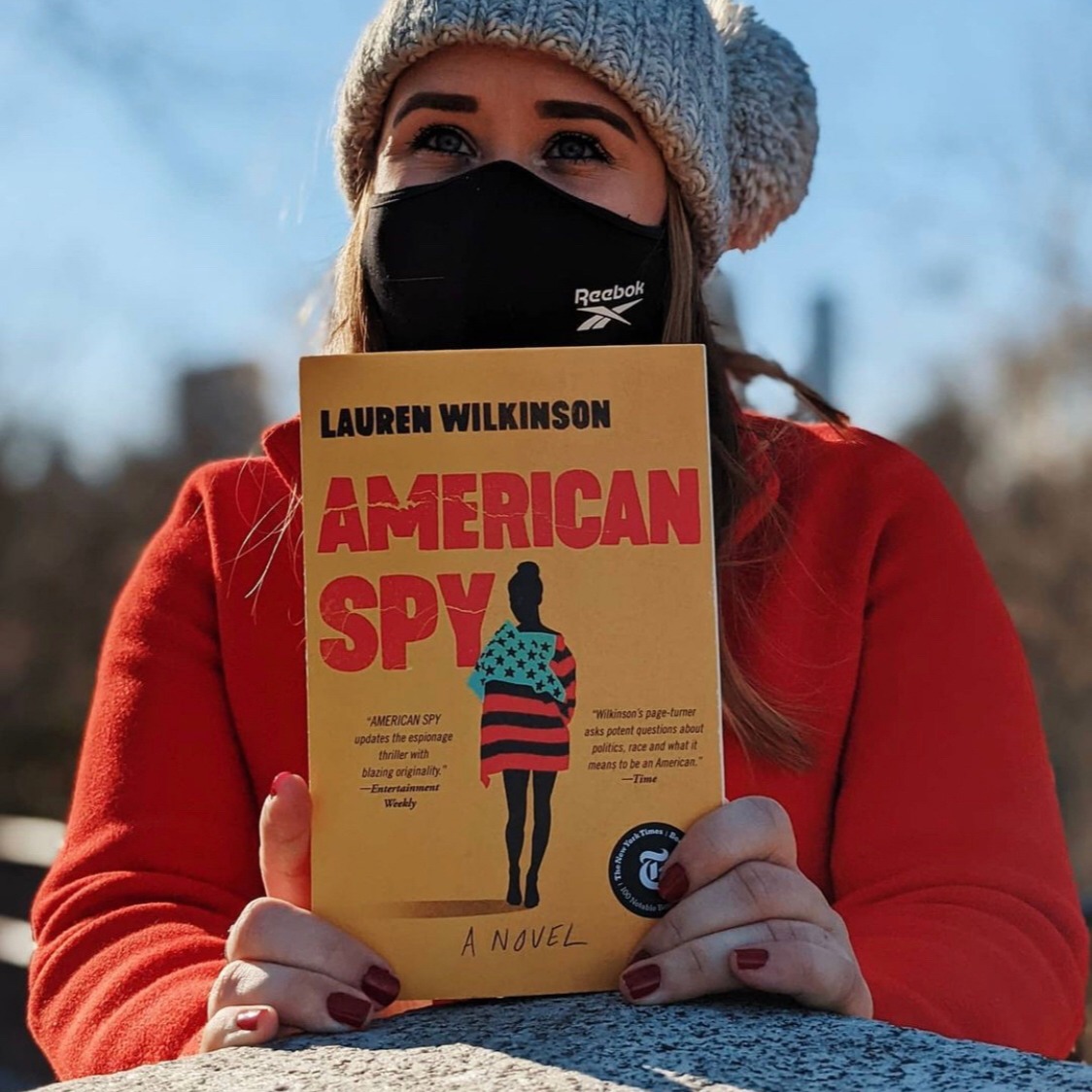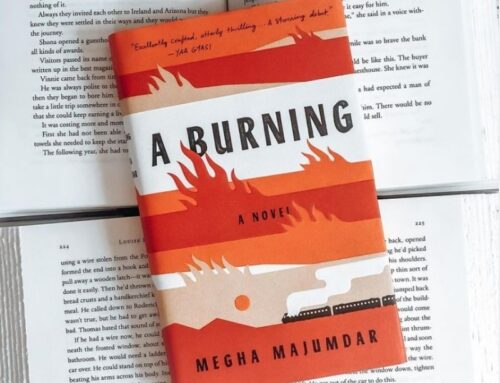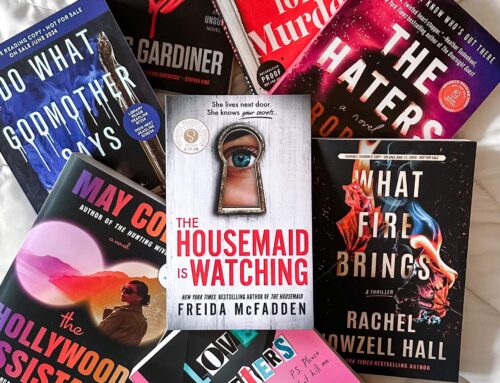Feature image credit: @brooklyninbooks
Espionage fiction has traditionally been dominated by male authors writing about male protagonists, but the genre needn’t be male-only. Certainly, in real life, there have been plenty of women spies. Here are five of the best books about female spies.

American Spy: A Novel by Lauren Wilkerson
American Spy: A Novel by Lauren Wilkinson is an unprecedented blend of classic spy thriller and literary fiction, written in the form of a letter from the protagonist Marie Mitchell to her twin boys. Published in 2019, the thriller aspect of the book plays on the life of Thomas Sankara, the Communist-leaning charismatic leader of Burkina Faso from 1983 to 1987, and the forces, both internal and external, that are conspiring to bring him down. Details about life and scenery in and around the capital Ouagadougou, numerous Cold War references concerning American intervention in Africa, and the twisted trails of FBI and CIA characters quickly thrust the reader through the plot in the tradition of the best espionage writers.
But Wilkinson illuminates so much more. The story blasts off in the first few pages, as Marie, a Black woman, skillfully attacks and kills an armed intruder in the bedroom of her Connecticut home. It then doubles back to Marie’s childhood in New York City in the 1960s and 70s, and eventually, blanks are filled in about her father’s employment, her sister’s mysterious death and her mother’s life in Martinique. Through Marie’s eyes, the reader experiences what it’s like to be a Black woman in law enforcement colliding with sexism and racism. At the same time, emotions run high as Marie is forced to reckon with big themes like patriotism, integrity and loyalty. Perhaps most surprisingly for a spy novel, “American Spy” is also a keen reflection on motherhood and the fierce protective instincts it ignites.

An African Affair by Nina Darnton
An African Affair by Nina Darnton, published in 2011, tells the story of foreign correspondent Lindsay Cameron in Lagos, Nigeria, in the 1990s. While covering tough issues like corruption, drug trafficking and human rights abuses, Cameron is catapulted to a new level of danger and intrigue when the country lands on the verge of a coup. As democracy activists agitate and tensions rise, Cameron seeks out answers, befriending US embassy officials and rebel leaders alike, while juggling her new art dealer boyfriend. Aiming to report accurate news without inflicting harm, she is forced to confront increasingly difficult questions: Do you grab a scoop or help your colleagues? Do you chase a story if you put a source at risk? What happens if following your conscience means compromising your journalistic standards?
With vivid descriptions of urban and rural scenes in Nigeria, where Darnton lived in the 1970s, Darnton’s story also explores the role of the CIA in foreign unrest, as the lines between good and bad become increasingly blurred.

The Secret Agent by Francine Mathews
The Secret Agent by Francine Mathews, published in 2002, is a classic spy thriller in the tradition of masters like Ian Fleming, Frederick Forsyth and John Le Carre—but in this thriller, you get two secret agents for the price of one. Not only does it riff off the real-life Jim Thompson, an American silk merchant in Bangkok who was rumored to be a secret agent, but it also tells the tale of Stefani Fogg, an investment adviser who can’t resist dumping her boring routine to do clandestine work for a risk management firm.
In her first assignment, Fogg must assist Max Roderick, a disaffected professional skier, to determine why a Thai prostitute turns up dead in his own bed. As the grandson of the late Jack Roderick, the fictitious Silk King, and the son of Rory Roderick, an American fighter pilot captured during the Vietnam War, Max has a complicated family, and questions about his inheritance quickly arise. As the story unfolds, Mathews brilliantly weaves together the lives of the three men, conjuring up scenes in Ceylon during World War II, Malaysia’s Cameron Highlands and Hanoi in 1967, and epic off-trail ski runs in Courchevel, France. Lucky for Fogg, she can give Max a run for his money, both on the slopes and in life.

Above Suspicion by Helen MacInnes
Above Suspicion by Helen MacInnes, is a smooth romp about a well-to-do but otherwise seemingly ordinary English couple, Frances and Richard Myles—a “couple of innocents abroad”—who use their annual vacation as a ruse to meet a Resistance agent in Paris at the beginning of World War II (1939) and proceed to assist him according to his directions. Pretending to enjoy their holiday, they follow leads to Germany and Austria. Despite the trials and tribulations of life in territory dominated by the Nazis, including nasty encounters with the secret police, the Myles proceed with wit and courage—offering the reader an excellent story, but also a window onto life in a Fascist state and useful coping strategies. Considering her publication year of 1941—relatively early in the war (and prior to widespread publicity about concentration camps)—MacInnes seems extraordinarily prescient and courageous in pointing out both the little indignities and the giant atrocities of the Nazis.

The Scarlet Pimpernel by Baroness Emmuska Orczy
“The Scarlet Pimpernel,” by Baroness Emmuska Orczy (1865-1947), came to me as a leather-bound beauty from my neighborhood Little Library about a year ago. As I walked by, an elderly woman was standing in front of the open library box and holding the book, its elegant gold-on-maroon cover design announcing its importance. Perhaps I complimented it. Perhaps I just stared at it with eager eyes. But I remember the woman thrust it toward me. “You want it?” she blurted. “I’m not going to read it.” I accepted it, and turning it over in my hands, was intrigued to find a title I had heard of—though I couldn’t recall why. By the looks of the stunning “International Collectors Library” edition (no date inside, but these books appeared from the 1940s through the 1980s), it was clear the book was a classic, so I figured it was a good bet. Still, I was wholly unprepared for this amazing spy thriller—which, it turns out, was one of the most commercially successful books of the 20th century. Its fast pace, compelling characters and twisted plot make it easy to understand why. Published as a play in 1903 and a book in 1905, the story begins in Paris in 1792—right after the French Revolution—as aristocrats are being led to the guillotine “by the hour.” To the great consternation of French officials, however, some of the “aristos” are escaping to England, apparently with the help of an Englishman known as the Scarlet Pimpernel. How could this be happening? Who has taken on this secret identity? Kudos to the Hungarian-born British woman who actually made a living as an author using her own name more than a hundred years ago.







Leave A Comment